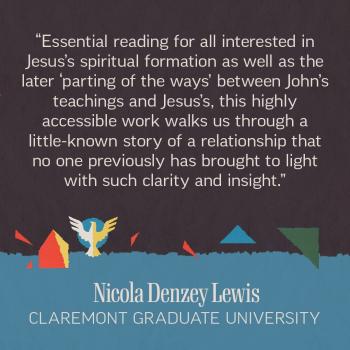She goes on to say:
What I hate is that I see it becoming increasingly difficult to make those traditional choices, both on a practical level (i.e., our economy is increasingly geared for dual income families) and on a social/cultural level (i.e., women feeling pressured to "be more" than a housewife. Or in my case, never having been presented with that as a viable option). Is it possible to have one without the other?
Angie's question underscores the connection between the mixed basket of feminism and the Mormon belief that choice is essential to righteousness, and opposition is essential to choice. Feminism may affect society in ways many Mormons deplore, but there is a greater good to consider -- and it's found not by weighing pros and cons of specific freedoms on a feminist agenda, but by weighing the value of freedom itself in the context of moral agency. Perhaps surprisingly, this value is most evident when we consider the gender roles and family structures that Mormons champion and feminists allegedly undermine. Before feminism granted women the opportunity for financial independence, they were compelled to marry for economic survival -- and therefore could not choose marriage as free agents. Likewise, before feminism made female contraception widely available, a woman could not choose whether to become a mother, and thus could not "prove herself therewith" (Abraham 3:25).[7] Indeed, without the rights and freedoms afforded by feminism, Mormon women could not freely choose many of our most valued roles within and without the domestic sphere, and therefore could not merit the earthly and heavenly rewards of doing so.
Perhaps this realization will help Mormons spooked by feminism to understand why some of the faithful among us are pleased to carry on this movement despite its controversies. Mormons are, after all, no strangers to the concept of loyalty amidst opposition. Deborah describes the parallel:
I claim the word Mormon as a self-descriptive, even though it is met with skepticism and cynicism by many in our society, even though I do not feel comfortable with some of the cultural aspects of the church, even though the church has had distinct "waves" in terms of doctrinal emphasis, and even though there have been prominent members whose beliefs and behaviors bother me. Why? Because Mormonism -- and not just the Gospel -- has been incalculable force for good in my life.
I claim the word feminist as a self-descriptive, even though it is met with skepticism and cynicism by many in our church, even though feminism has had distinct "waves" in terms of political and social emphasis, and even though I do not feel comfortable with the writings or actions of some prominent activists. Why? Because when I think of the opportunities I and my students have been afforded on the backs of our foremothers, I want to weep. And when I look at the state of women around the world who still struggle to be afforded basic rights and regard, I still want to weep.
Of course, such parallels cannot remove the tensions inherent in being Mormon and feminist -- or, for that matter, being Mormon and anything else. The stresses of double loyalty lead Church members of all stripes to exaggerate connections between our faith and our other beliefs -- as witnessed when we suggest or even insist that God endorses a particular political party or secular economic system or any other philosophy of man (or woman). And feminists are not exempt from this temptation. While I appreciated her boldness, I couldn't agree with the sister in my long-ago BYU ward who proclaimed in a sacrament meeting talk that "Jesus is a feminist" -- as if a human construct can circumscribe God. Similarly, I hesitated when Joanna Brooks on NPR labeled elements of Mormon theology, such as our belief in a Heavenly Mother and our approach to Eve, as "pro-feminist." I'd argue that, if anything, these are examples of feminism being pro-Mormon, not the other way around.
But results of reckoning aside, the issue of primacy is unavoidable for those who are Mormon and feminist. Despite the overlap between the two belief systems, points of conflict make it necessary at times to compromise the values of one for the other. This becomes most evident when we turn a feminist eye to Mormonism itself.
Oxymormonic
"Mormon feminism is not an oxymoron," maintains Joanna Brooks. "Or an oxymormon, for that matter." (Rimshot!) Yet irreconcilable differences lie at the heart of Mormon feminism, making it even more complex than feminism at large, even though its scope is smaller. As the WAVE website states:
Mormon feminism is a strand of feminism that primarily concerns itself with how feminist thought and practice intersects with the doctrine and organization of The Church of Jesus Christ of Latter-day Saints. . . . Overall, Mormon feminists are committed to working for greater gender equity, both inside and outside of the LDS church.




